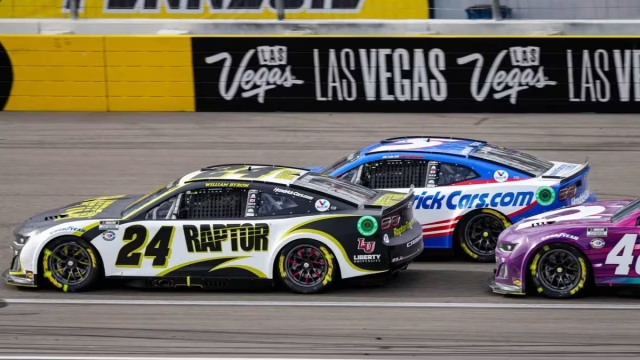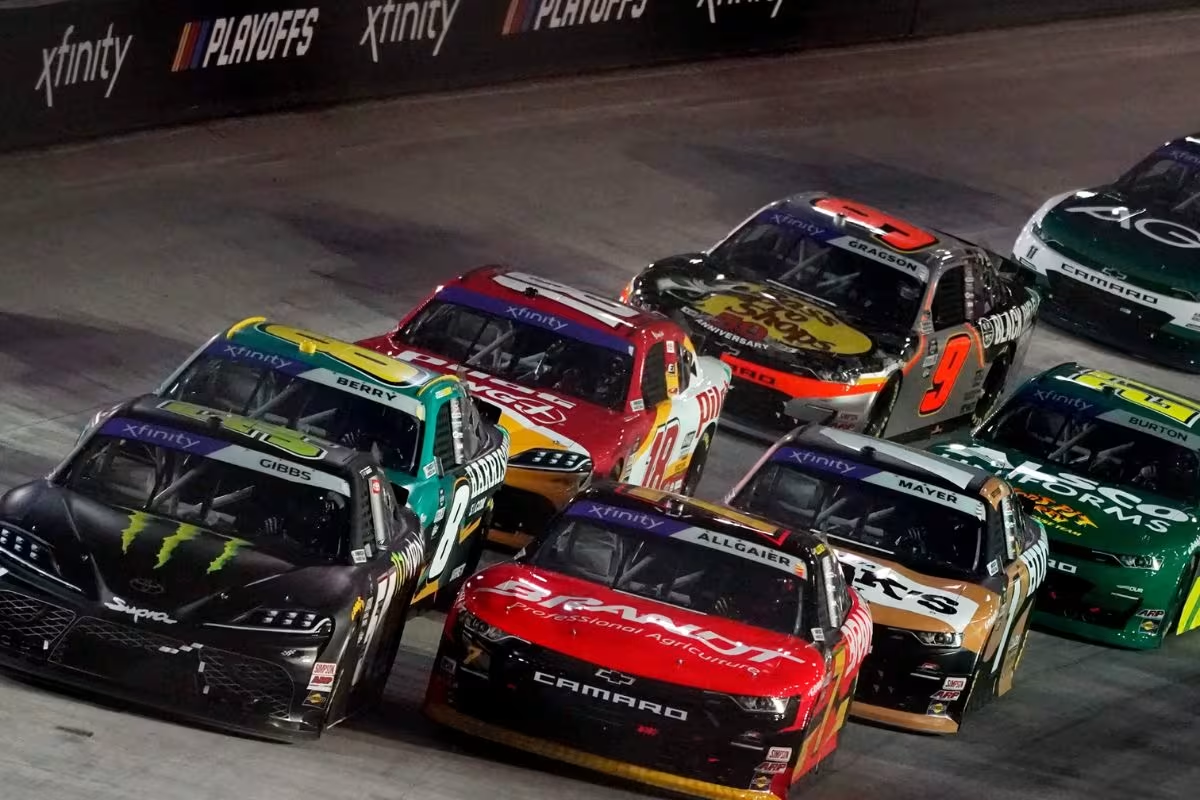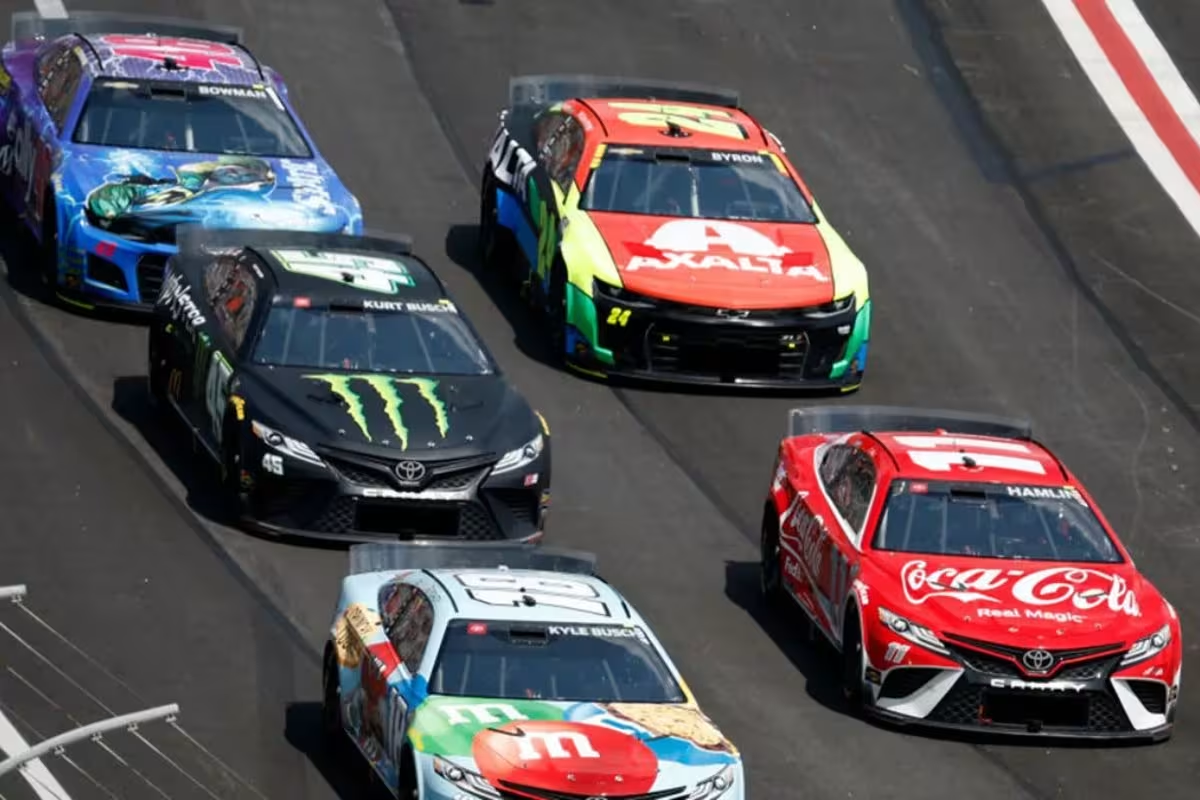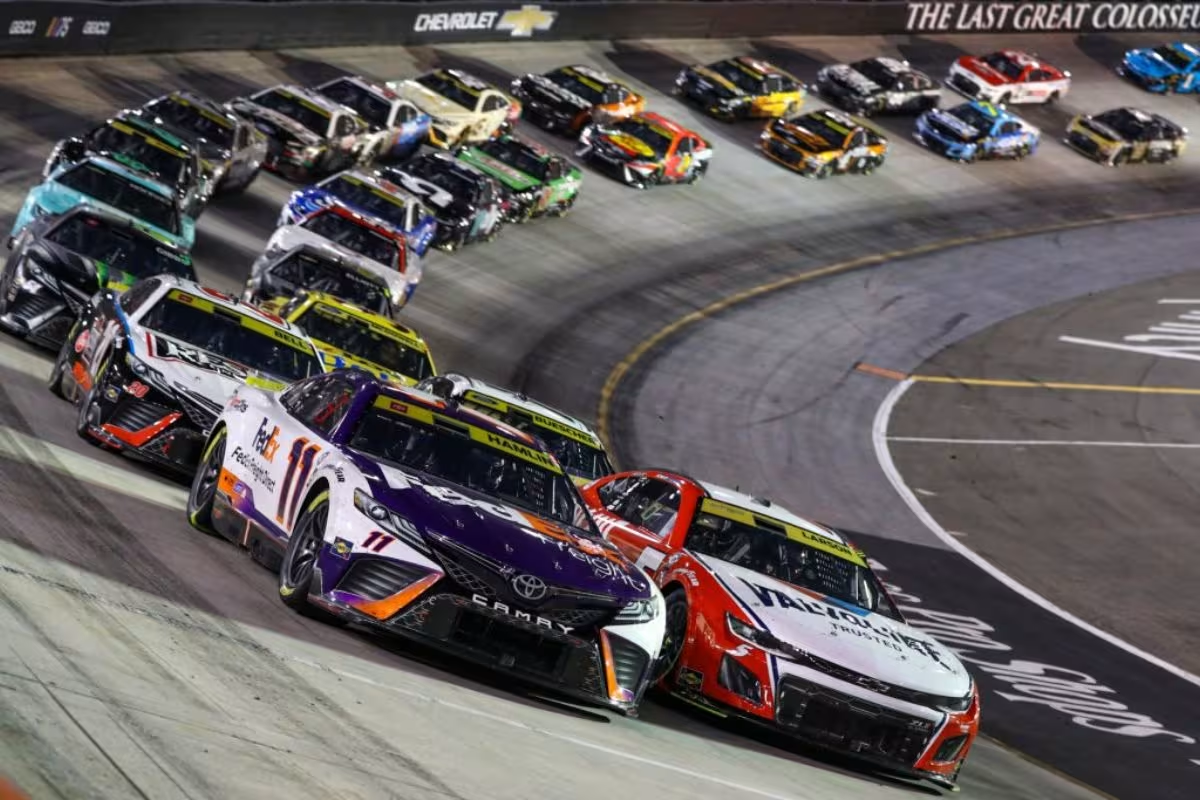NASCAR Insider Blasts Team Owners: The recent criticism from a NASCAR insider regarding team owners’ inability to confront the France family raises considerable questions about the governance and power dynamics within the sport. This commentary not only shows frustrations rooted in financial dependencies but also suggests a broader issue of representation and agency among team owners. As the charter system continues to command the operational landscape, the necessity for collective action becomes increasingly apparent. What consequences might this lack of confidence have for the future of NASCAR, and could a shift in ownership dynamics be on the horizon?
Key Highlights
- Insiders criticize team owners for lacking the courage to challenge NASCAR’s dominant France family amid ongoing power imbalances.
- Many team owners fear financial consequences tied to charters, which limits their willingness to confront NASCAR leadership.
- The current charter system creates an environment of compliance, discouraging dissent among team owners even in the face of inequities.
- Team owners receive only 13% of NASCAR’s total revenue, contributing to their hesitation to engage in confrontational negotiations.
- Criticism shows a broader issue of accountability and courage among owners in advocating for necessary changes in the sport.
Overview of the situation
The recent chaos within NASCAR shows a considerable power imbalance between team owners and the sanctioning body. The reality was brought to light when the body presented a 105-page charter agreement with six-hour deadline on September 6th. This ultimatum emphasized the authority the France family holds over the sport, leaving team owners in a vulnerable position.
“The best thing to be is NASCAR, the second best a driver, and the last thing a team owner.”-(jimmie johnson)
The sentiment expressed by Jimmie Johnson, that being a team owner ranks last in the hierarchy of NASCAR, resonates deeply in this situation.
The charter, laden with substantial financial commitments, demonstrates the extent to which team owners are beholden to the sanctioning body. With a “take it or leave it” proposition, the terms of the agreement effectively stripped owners of power, forcing them to acquiesce to obligations that may not align with their operational interests.
“take it or leave it”-(jimmie johnson)
This scenario raises questions about the sustainability of such a model, where team owners must navigate the hazardous waters of compliance while covering with the economic realities of running a race team.
As the industry continues to evolve, the consequence of this power dynamic are far-reaching. Team owners must consider not only their short-term viability but also the long-term consequence of their compliance.
The current situation demands a reevaluation of the governance structure within NASCAR, as the balance of power must be addressed to guarantee a collaborative future, rather than a commanding one.
The necessity for reform is evident, as the current state may ultimately risk the integrity and competitiveness of the sport.
Team Owners Standing Firm
While many team owners have gave in to the pressure exerted by NASCAR, Michael Jordan and Bob Jenkins have emerged as definition of toughness, challenging the status. Their decision to confront the dominant powers of the sport highlights a NASCAR, showing that even in a landscape dominated by fear and compliance, there exists a pathway for assertive leadership.
The conventional wisdom within the Cup garage suggests that most team owners have opted for silence, unwilling to challenge the formidable influence of NASCAR. This collective hesitance stems from an environment where the charter system, introduced in 2016, has left teams with minimal negotiating power.
A team owner told Jordan that he didn't have the *guts* to do what 23XI and FRM are doing. 😳 pic.twitter.com/GaTL1AROKz
— Dirty Mo Media (@DirtyMoMedia) October 2, 2024
NASCAR’s tight control over revenue distribution, vehicle specifications, and even the viability of a team emphasizes the systemic constraints imposed on owners. When faced with a new agreement that offers scant concessions and threat against lawsuit the response among most has been one of giving in.
Jordan and Jenkins have taken a bold stance, that they will not allow their teams to be mere pawns in a game dictated by NASCAR’s interests. Their actions resonate beyond the immediate context; they reflect a growing frustration among teams that crave a more equitable framework within which to operate.
Reactions from Team Owners
Numerous team owners have expressed a mixture of admiration and concern in response to the bold moves made by Michael Jordan and Bob Jenkins. The contrasting sentiments shows a significant divide within the NASCAR community, where the fear of losing vital charters weighs heavily on decision-making.
“I had a team owner tell me, ‘I did not have the b**ls to do what 23XI and Front Row did because I was worried about losing my charters.”-(jordan bianchi)
“If I’m the owners who did sign this, I’m thinking, maybe I would have liked to hold out. because the only reason I signed was because I thought I was gonna lose my charters. And I couldn’t afford to do that. I had a piece of paper worth $50 Million.”-(jeff gluck)
- Fear of Repercussions: Many owners, as one candidly noted, felt they “did not have the bls” to challenge the France family, fearing severe consequences for their franchises.
- Financial Stakes: The value of charters, estimated at around $50 million, looms large in the minds of owners, compelling them to comply with NASCAR’s directives to avoid financial ruin.
- Moral Dilemma: As Jeff Gluck articulated, team owners covers with a moral — should they prioritize integrity over financial security, knowing the latter could render their charters worthless?
- Pressure Tactics: The metaphor of holding winning lottery tickets encapsulates the coercive nature of NASCAR’s approach, leaving team owners in an unstable position where dissent could lead to losses.
“ put a gun to our heads.You’re holding the winning lottery tickets. Somebody’s coming up to you and saying, ‘If you don’t do X, these lottery tickets are voided – they’re worth nothing. So you wanna take that chance? You wanna play ball?’ And I’d be like, oh man. I hate this guy, I don’t like this tactic. But I don’t want my tickets to be worthless.”-(gluck)
These reactions reveal a complex landscape where admiration for groundbreaking leadership coexists with trepidation about the risks involved.
The dynamic emphasizes a broader issue within NASCAR: a struggle for autonomy during external pressures. This duality reflects not only the challenges of the current environment but also the need for a collective reassessment of relationships within the sport.
The silence of many team owners speaks volumes about their apprehension, suggesting that the status quo remains a formidable force in NASCAR.
Comparisons with Other Sports
Comparisons between NASCAR and other major sports leagues, such as the NBA, reveal clear contrasts in financial dynamics and team owner autonomy. In the NBA, team owners typically have a more platform to negotiate for their interests, largely due to a more equitable revenue-sharing model. This model allows for a more balanced competitive landscape.
NASCAR’s financial structure, particularly the charter system, skews heavily in favor of a select few, often stifling smaller teams and leaving them at a disadvantage. The recent team owners over the charter deal highlights this discrepancy. While 23XI Racing and Front Row Motorsports (FRM) took a stand, the wider industry remained passive, with notable figures like Rick Hendrick expressing fatigue with ongoing disputes.
Hendrick’s sentiment reflects a broader trend wherein some owners prefer to adapt to the existing framework rather than risk. This contrasts sharply with the NBA, where the collective bargaining power of teams often leads to substantive changes.
Moreover, the presence of influential personalities like Michael Jordan in the NBA tells how star power can shape league dynamics. Jordan’s involvement lends credibility and attracts attention, which is less common in NASCAR, where individual owner influence is diluted.
The reluctance of NASCAR team owners to challenge the France family directly reveals a culture of risk aversion, steering them away from potential disruption. This lack of boldness highlights the intrinsic differences in governance and financial empowerment across these sporting leagues.
Disparities in Revenue Distribution
Key points to take into account include:
- Revenue Share: NASCAR teams receive only 13% of total revenue, meaningfully limiting their operational budgets.
- Driver Earnings: The 3% allocation to drivers raises concerns about their financial viability and motivation.
- Comparison with NBA: NBA players garner 49% of the league’s revenue, highlighting a systemic imbalance within NASCAR.
- Calls for Change: Team owners, including Curtis Polk of 23XI Racing, are advocating for a more transparent and equitable revenue distribution model.
“Over the past two years, me on behalf of 23XI, I have dedicated myself to championing a more equitable and transparent system within NASCAR, one that respects the interest of all the stakeholders. Our passionate fans and hard-working teams deserve a structure that not only promotes growth but ensures sustainability for everyone involved.”-(curtis polk)
The necessity for a more balanced system is increasingly urgent. Polk’s commitment to reform emphasizes a crucial moment for the sport, as he states the need for a structure that says sustainability and respects all investor involved.
The only individual team survival but also the long-term health of NASCAR as a whole. As the lawsuit unfolds, the outcomes will be vital in determining whether NASCAR can evolve to meet the demands of its teams and drivers, ultimately ensuring the sport’s growth and sustainability.
News in Brief: NASCAR Insider Blasts Team Owners
ALSO READ: JR Motorsports Renews Deal With Bass Pro Shops for Exciting 2025 NASCAR Season



